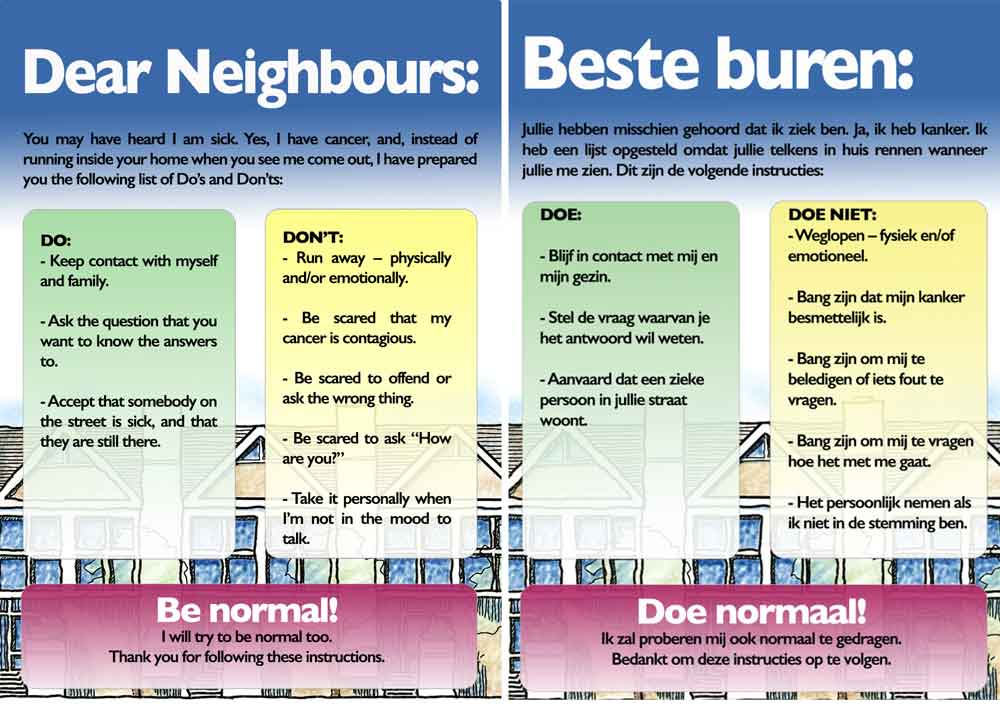Tell your friends (and neighbours)
JOSÉ
I live on a small street with a closely-bonded community. We help each occasionally and keep an eye out for each other. When I first was diagnosed with cancer, there was nice weather and I walked outside my home. Instantly, I noticed that people ran into their house – even if they were talking to another neighbor. More and more I noticed that people were running away, so finally I went door to door, rang their bell and explained the situation. That I had cancer.
When people greet each other, they usually start with the question “How are you?” But you can’t ask this question, if you know that the answer is “Not good.” The fear is as simple as that, really. People are afraid and don’t know what question to ask if not using the standard greeting, which is why I went around and told them. I also told them that if I’m not in the mood to talk about it, I will say that I don’t want to talk about it today and I will talk about it another day… maybe.
In a big city, you usually don’t know your neighbours, but here, on this small street, we are around the same age, with the same age kids. We talk more. But if the standard greeting of “How are you?” is impossible, you have to find another way.
Charlotte and Joke
People often find it difficult to talk about cancer and the emotions that accompany this experience. We haven’t always learned to talk about cancer as we often prefer to talk about the positive or ‘happy things’ in life. People are often afraid about saying the wrong thing or upsetting someone, and, as a result, they avoid talking about it altogether. There are many different reasons why it feels difficult to talk about cancer from the perspective of a non-patient: sadness, anger, fear for the confrontation with the other and fear for what will happen to the patient. They may also feel that they don’t have the energy to listen to the story of the patient. We encourage patients not to let the silence take hold and to talk to significant others about their cancer experience when interested. Talking to others will help them talk to you. A lot of people with cancer talk about growing closer to some, but losing contact with others. It can be reassuring for patients to understand that not everybody can deal with this grief, that friends come and go with the changes of life.

